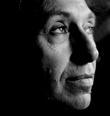Defending Ayaan Hirsi Ali

In France, Pascal Bruckner is at the centre of the argument about Islam. As in Britain, anyone who voices any criticism at all about the Islamic world as a culture is likely to be called a racist, and Bruckner has not escaped that accusation: a novelist who speaks also on politics, he is rather in the position of Martin Amis. Bruckner has a good answer: “Multiculturalism is the racism of anti-racists.” But his answer gets him into trouble with multicultural ideologues, none of whom liked his two main works on the subject, Le sanglot de l’homme blanc (The Tears of the White Man, 1983) and La tyrannie de la pénitence (2006), a counter-strike against what he sees as the West’s overdeveloped capacity for self-criticism. His isolated position was most glaringly illuminated, as if by a star-shell, when, in early 2007, he defended Ayaan Hirsi Ali against the doubts cast on her arguments by Timothy Garton Ash and Ian Buruma. I myself find reason to doubt that Ali is on the right track when she wants the whole of Islam secularised, but I think there is every reason to salute the authenticity, not to say the courage, of her wish for an Islamic world that will treat women fairly, and I know that there are many Muslims – not all of them women – who think the same. If secularism as an aim helps to bring about liberalism as a result, then all to the good.
As for Bruckner’s article in her defence, it is hard to fault. The English translation, as provided by the excellent German online magazine Signandsight, retains too many of his original exclamation marks, but otherwise pays the right kind of respect to a model of logical presentation. Near the end, in the paragraph starting “Finally, one last argument …”, if the word “serves” is replaced by “served” the meaning will be clear. For readers of German, there is a version in that language, directly transcribed from this classic article’s first appearance in the on-line magazine Perlentaucher. Also given here is a Signandsight interview with Bruckner about the condition of the immigrant in France. The interview, given in the era of burning cars, is a lasting evocation and analysis of the angst prevailing in the philosopher’s stricken homeland before Nicolas Sarkozy and Carla Bruni arrived to rule jointly and save the day.
many of his original exclamation marks, but otherwise pays the right kind of respect to a model of logical presentation. Near the end, in the paragraph starting “Finally, one last argument …”, if the word “serves” is replaced by “served” the meaning will be clear. For readers of German, there is a version in that language, directly transcribed from this classic article’s first appearance in the on-line magazine Perlentaucher. Also given here is a Signandsight interview with Bruckner about the condition of the immigrant in France. The interview, given in the era of burning cars, is a lasting evocation and analysis of the angst prevailing in the philosopher’s stricken homeland before Nicolas Sarkozy and Carla Bruni arrived to rule jointly and save the day.
Read Pascal Bruckner's article defending Ayaan Hirsi Ali.
The same article in German.
Interview with Pascal Bruckner.
Click here for the Signandsight “Islam in Europe” debate, featuring Bruckner, Buruma, Garton Ash, Kelek and others.





 many of his original exclamation marks, but otherwise pays the right kind of respect to a model of logical presentation. Near the end, in the paragraph starting “Finally, one last argument …”, if the word “serves” is replaced by “served” the meaning will be clear. For readers of German, there is a version in that language, directly transcribed from this classic article’s first appearance in the on-line magazine Perlentaucher. Also given here is a Signandsight interview with Bruckner about the condition of the immigrant in France. The interview, given in the era of burning cars, is a lasting evocation and analysis of the angst prevailing in the philosopher’s stricken homeland before Nicolas Sarkozy and Carla Bruni arrived to rule jointly and save the day.
many of his original exclamation marks, but otherwise pays the right kind of respect to a model of logical presentation. Near the end, in the paragraph starting “Finally, one last argument …”, if the word “serves” is replaced by “served” the meaning will be clear. For readers of German, there is a version in that language, directly transcribed from this classic article’s first appearance in the on-line magazine Perlentaucher. Also given here is a Signandsight interview with Bruckner about the condition of the immigrant in France. The interview, given in the era of burning cars, is a lasting evocation and analysis of the angst prevailing in the philosopher’s stricken homeland before Nicolas Sarkozy and Carla Bruni arrived to rule jointly and save the day.